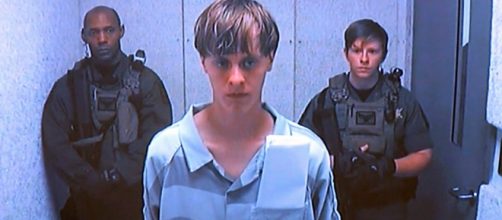It came across as a mere formality on Tuesday, January 10 when young white supremacist Dylann Roof, perpetrator of the heinous 2015 Charleston church shooting, was recommended by the same federal jury of 10 women and two men – nine white and three black – who found him guilty of federal hate crimes, to be put to death for all 18 of his total 33 federal convictions that warranted the capital punishment. The occasion marked a grim first in the history of the American criminal justice system according to a spokesperson from the Justice Department, in that Roof would be the first defendant to get the death penalty for hate crimes at the federal level.
Charleston church shooting
Dylann Roof made international headlines in June 17 of 2015 when he entered Charleston’s EAM Episcopal Church during evening bible study and, after sitting with the congregation for nearly an hour, started blasting away with a concealed handgun, killing nine and wounding one. Once caught and put on trial, a chilling picture was formed of and around the then-21-year-old Roof, who stated he had “radicalized himself” owing to the rising trend of black suspects attacking and killing white victims,and reading up on “reported black-on-white crimes” recorded by conservative websites.
Under questioning Roof revealed his purported goal of igniting a race war, insisted that he was of perfectly sound mind to prevent his defense attorneys from labeling him as mentally disturbed, and professed absolutely no guilt for his actions, to the point of not even bothering to press charges against an African-American inmate who assaulted him 2016 in the shower at his detention facility.
After-effects of a hateful act
The church shooting saw some landmark events brought upon by its highlighting of the continuing persistence of violent racial tensions in the United States. Now-outgoing President Barack Obama had delivered a moving eulogy for the slain church pastor and South Carolina state senator Clementa C. Pickney. Eventually, South Carolina lawmakers and Governor Nikki Haley saw through a measure to remove the Confederate battle flag from its place of honor at the statehouse grounds flagpole.
Does death mean death?
With the jury’s decision now made, Judge Richard Gergel will formally sentence Roof on Wednesday, January 11 at 9:30 AM ET. His defense lawyers, despite being silenced by Roof in order to represent himself at the final stages of his trial, opine that the death penalty, rather than a conclusion, will extend the life of his case possibly indefinitely.
Already 63 federal inmates are on death row, but the last actual execution was carried out in 2003, making it seem more of a life sentence.
In addition to federal charges, Roof will also stand for state murder charges, although the trial date has been indefinitely postponed.

